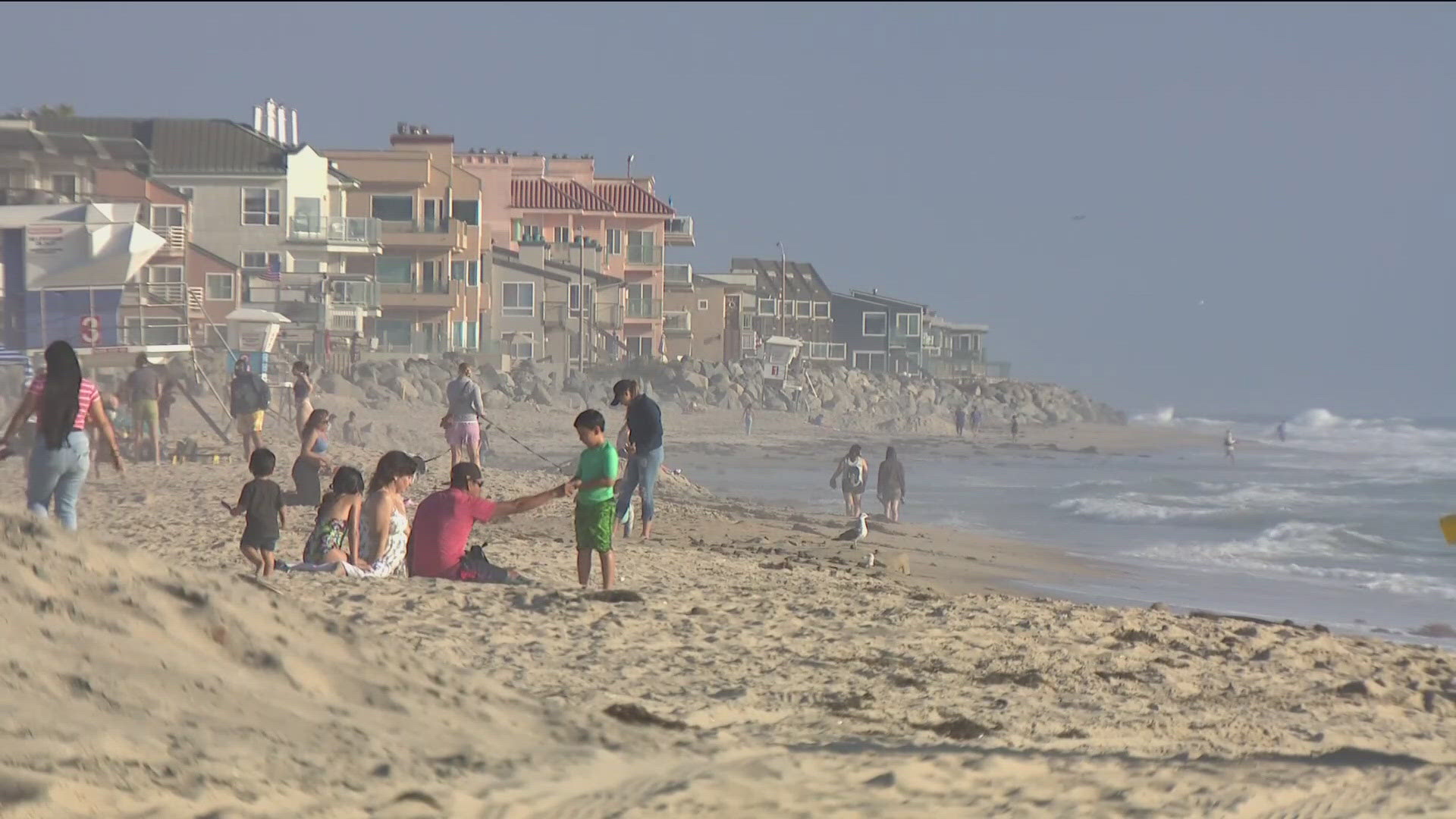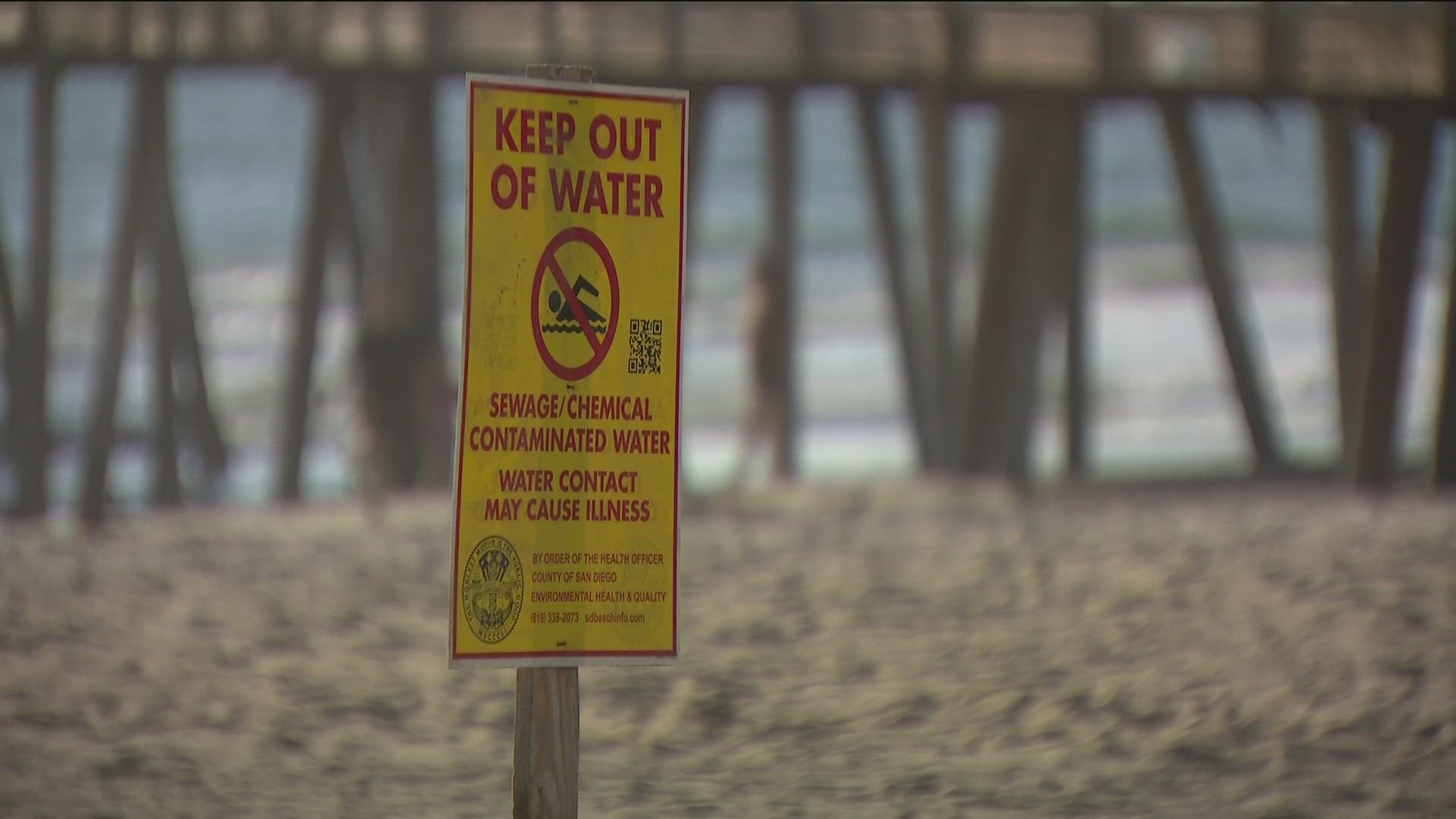SAN DIEGO — Imperial Beach parents blasted San Diego County Supervisors during a Wednesday board meeting over their failure to address toxic air and water quality at the U.S.-Mexico border.
For nearly two hours, parents criticized the County for stating that the air quality was not a health threat.
This comes as San Diego's Congressional contingent Monday reiterated their call for a declaration of a state of emergency following recent detection of high levels of toxic gasses near the U.S.-Mexico border.
The South Bay Union School District and Sweetwater Union High School District limited outdoor activities to prevent students from being outside. State representatives from San Diego also called for an immediate federal state of emergency Monday because of the gases found in the South Bay.
According to the Representatives -- Juan Vargas, Sara Jacobs, Scott Peters, all D-San Diego, and Mike Levin, D-Dana Point -- toxic gasses are impacting the health of South Bay residents.
"We write to reiterate our request for a State of Emergency in light of new findings that alarming levels of noxious gas are emanating from the Tijuana River," they wrote in a joint letter to President Joe Biden and Gov. Gavin Newsom. "Recent data has made it clear that these fumes are causing an immediate and serious threat to the health and safety of residents of South San Diego, and our community needs additional support."
The trans-border flows from broken sewage infrastructure in the river valley have lead to beaches in the South Bay being closed for more than 1,000 consecutive days, the U.S. Navy having to move some training exercises and led to a persistent smell of sewage in some areas.
According to Prather's team, the levels of hydrogen sulfide and hydrogen cyanide -- which can have a rotten egg smell -- are being trapped by the heat wave the region is experiencing. Thus, despite lower flows in the river, the smells and gasses associated with them are far worse than usual.
"At one site, there was a measurement of ten parts per million of HCN, which is the Occupational Safety and Health Administration's limit of exposure for workers with personal protective equipment," the congressional delegation wrote. "Another site had a reading of fifty parts per million of HCN, which is the highest level that researchers' meters could measure."
Prolonged exposures to these gasses can lead to headaches, nausea, nervous system issues and even death. South Bay schools have limited outdoor exposure for students, and the San Diego County Air Pollution Control District is recommending nearby residents stay inside.
"I called for this step last year to help combat pollution in the Tijuana River Valley, and today I'm reiterating my call to President Biden and Governor Newsom based on this new data," Vargas said. "In the past, the federal government has used a state of emergency to unlock federal assistance and provide residents with monitors, filters and more. Our communities need that kind of support. I also fully support requests for emergency assistance from local and state agencies. We need a whole-of-government response, and we cannot wait."
Last week, both local and federal governments acted on the continued pollution.
Sen. Alex Padilla, D-California, was joined by San Diego elected leaders to announce a bill intended to consolidate all infrastructure project efforts in the Tijuana and new river watersheds under the Environmental Protection Agency.
The proposed bill would allow the EPA to manage the rivers through a water quality management plan within 180 days of its passing, require the EPA to create a consensus list of projects and give the International Boundary and Water Commission more authority to address stormwater quality.
Late last month, elected leaders applauded the IBWC's announcement that it has awarded the contract for a project to expand the South Bay International Wastewater Treatment Plant -- one of several culprits for wastewater and sewage spillage into the Tijuana River Valley. Over the course of the project, the IBWC will use the more than $400 million in federal funding secured by the Congressional delegation to repair and expand the plant.
The bill proposed Thursday could change how the federal funds are doled out and managed, even for projects already in the works.
In May 2024, the elected officials called on the U.S. Centers for Disease Control and Prevention to look into the contaminants in the water, soil and air from the sewage and the connection to reported increases in illnesses and other symptoms. The CDC has agreed to begin an investigation into the public health impacts of the Tijuana River sewage pollution.
That survey will involve several hundred households near the border.
"People in the South County have lived far too long with flows of raw sewage in the Tijuana River Valley impacting their lives," said San Diego County Supervisor Nora Vargas. "This agreement with the CDC is a big win for us, and one I have advocated for. It brings the world's leading public health experts into our community to help get us the answers we deserve."
WATCH RELATED: Hot temps continue Monday in San Diego before gradual decline through the week


